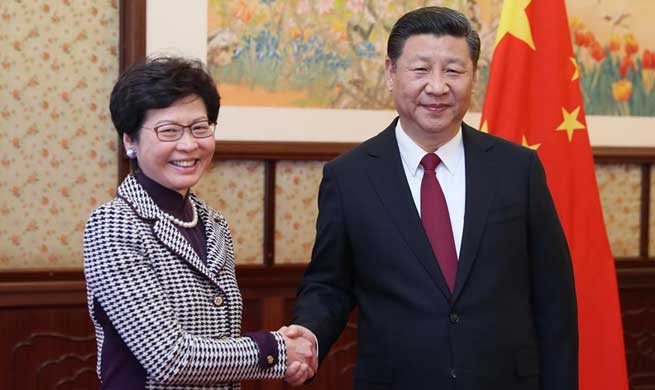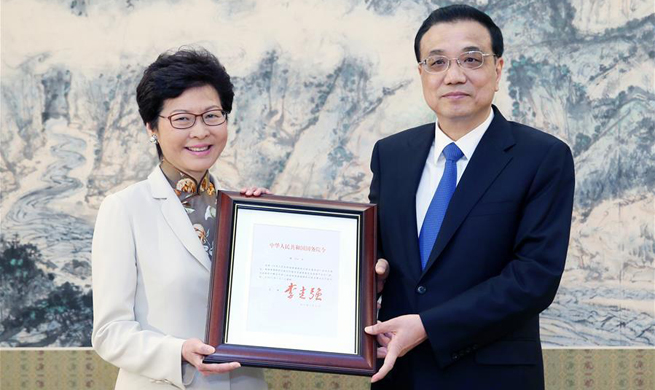LONDON, April 11 (Xinhua) -- The path of Britain's inflation changed in March as it ended its recent rise, according to data released on Tuesday, but this is likely to be merely a pause from the upward trajectory of figures seen recent months.
Britain's inflation was on a gradual rise from the second quarter of 2015, but the unexpected Brexit result of the referendum in June last year saw it shoot up from 0.5 percent to 2.3 percent in March, according to Wednesday's data.
"March's unchanged CPI inflation rate represents just a temporary pause in an upward trend which will probably take inflation to just over 3 percent," said Ruth Gregory, Britain economist at Capital Economics, a London-based data-analysis firm.
The three months to February saw the CPI inflation rate nearly double, as the effects of sterling's slide against foreign currencies began to be felt.
Easter in 2016 fell in March, and is reflected in the figures with much higher air fares, so a year-on-year comparison is slightly inaccurate. Easter this year is this week, and its upward effect on inflation will be felt when the April figures are released.
Sterling had been as high as 1.48 U.S. dollars on the day of the referendum, and has traded as low as 1.16 U.S. dollars between then and now. It's currently trading at 1.25 U.S. dollars, and this sharp decline means imports and commodities for manufacturers are more expensive.
Once inflation caused by the sharp fall in sterling has passed through, the figure is likely to fall back towards its 2 percent central bank monetary target over the course of 2018.
The central bank the Bank of England (BOE) is unlikely to change its monetary policy stance to counter rising inflation in the short term. The bank rate is currently at 0.25 percent, a record low set with a cut of 0.25 percentage points in August to offset potential negative effects on economic sentiment of the Brexit vote.
The BOE's stance could change if inflation was to stay at elevated levels on the back of increasing wages, but this is unlikely.
"We don't think that the rise will panic the BOE's rate-setting Monetary Policy Committee (MPC) into raising rates imminently. After all, the MPC tolerated an inflation overshoot of 3 percentage points in 2011," said Gregory.
"Given the uncertainty around the Brexit negotiations and the fact that there has been little sign of building domestic cost pressures, we continue to think that the MPC will hold off until the middle of next year before raising rates."
Against this backdrop of higher inflation, the latest retail sales figures, also released on Tuesday, showed a sharp slowdown in February.
The British Retail Consortium (BRC) Retail Sales Monitor showed no improvement in sales growth in March over February.
The total value of sales fell compared with a year earlier for the first time in seven months, by 0.2 percent, while the decline in like-for-like sales of 1 percent was the joint steepest in almost two years.
The underlying trend in retail sales is weakening. The average three-month growth fell to 0.1 percent, the softest rate since 2008.
With inflation recording the rise in prices, the Sales Monitor shows that consumers are now beginning to cut back on spending.
Samuel Tombs, chief Britain economist at Pantheon Economics, a London-based firm, said: "The BRC's survey suggests that the official measure of retail sales volumes fell further in March, rounding off the weakest quarter for sales growth since Q1 2010.
"Some of the weakness of retail sales in Q1, we think, reflects consumers' decision last year to use credit to undertake big ticket purchases before prices rose sharply this year. This shift in the timing of spending flattered retail sales growth in Q4, at the expense of Q1."
The ONS/Land Registry index, also released Tuesday, showed that in February the price to buy a house increased by 0.6 percent over the previous month, the highest pace since the Brexit referendum.
However, previous data were revised lower, leaving the headline annual rate at 5.8 percent, still the highest level in four months.

















